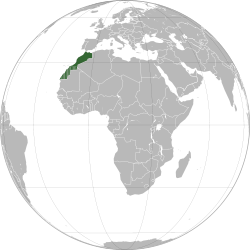By: Said Temsamani

The year 2012 witnessed the powerful bilateral relations between the France and Morocco and confirmed the continuity of their agreement on major world issues. The quality of the dialogue maintained at the highest level and the shared desire to put their exemplary partnership on a “more ambitious trajectory” will be the focus of the upcoming state visit of the French President François Hollande to Rabat in early 2013.
Two weeks before the end of 2012, the two countries have witnessed not only in statements but through commitments, agreements and common road map for the future, the strength of their multifaceted ties, their reciprocal commitments to move forward.
The High Level Meeting co-chaired the 12th and 13th December by the French Prime Minister, Jean-Marc Ayrault and his Moroccan counterpart Abdelilah Benkirane, has confirmed the continuity of the friendship, the strength of trust and the announced the intention of both sides to consolidate their common already strong ties, to sow more seeds for shared growth.
On May 24 2012, King Mohammed VI was the first head of state to be received by the newly elected French President in the Elysee. This brilliant brand relationship needs to be reconfirmed and to develop without delay.
The road map was drawn automatically. President Holland clearly said: “France reaffirms its commitment to the friendship between France and Morocco and emphasizes its uniqueness through the many links between our two countries.”
The head of the French government had also “welcomed the process of democratic reform, economic and social progress in the Kingdom at the initiative of HM King Mohammed VI” and solemnly declared that France “stands for the excellent ties with Morocco and congratulates it for choosing the path economic modernization and the consolidation of rule of law. ”
With this first interview and the handshake immortalized by photographers on the steps of the Elysee Palace, Rabat and Paris wanted quickly to boost the “uniqueness” of their relationship and “the density of bilateral political dialogue”, as President François Hollande stated.
The French Prime Minister Jean-Marc Ayrault reserved his first visit to Morocco. A visit that had nothing of protocol but included not only senior officials in French government, but also key players in the dense bilateral relationship: large caliber entrepreneurs and parliamentarians.
This prelude to the visit that President Hollande will make to in Morocco in early 2013, confirmed the constant, dense and deep multifaceted relationship forever marked by the seal of excellence.
King Mohammed VI stressed rightly at the hearing granted to Mr. Ayrault, the distinguished character of this partnership and the strong commitment of both parties to strengthen and deepen further in the service of socio-economic development.
King also commended the quality of the strategic dialogue between Morocco and France that comes in a meaningful dialogue maintained between the King and the French President François Hollande on bilateral, regional and international topics. A dialogue that will culminate at the beginning of next year, during the state visit to Morocco by the French president.
Already the Fen ch PM’s visit gave a new impetus to the economic relations between the two nations: 13 agreements were signed and loans of € 280 million, so that in future the Moroccan-French partnership be “refreshed with more sectoral and specific content.”
As for the political aspect, the high-level dialogue is expected to continue in a spirit of cooperation and convergence of views on diplomatic issues with specific focus on both the Syrian dossier, Mali and the future of the Israeli-Palestinian frozen process.
Undoubtedly, this upcoming state visit will reinforce the strategic dialogue and will benefit the economy of both countries. Many observers are looking forward to the outcome of this visit especially on international issues where both countries have shown a full coordination and convergence of views. So concretely speaking what are the actions and initiatives that both countries will take in an effort to resolve key and pending international conflicts either in subsahran Africa or the Middle East?
About the author:
Said Temsamani
Said Temsamani is a Moroccan political observer and consultant, who follows events in his country and across North Africa. He is a Senior Fellow, Merdian International Center Washington DC, Founder and CEO “Public Initiatives” Consulting firm and Former Senior Political Advisor, US Embassy Rabat, Morocco.
.






